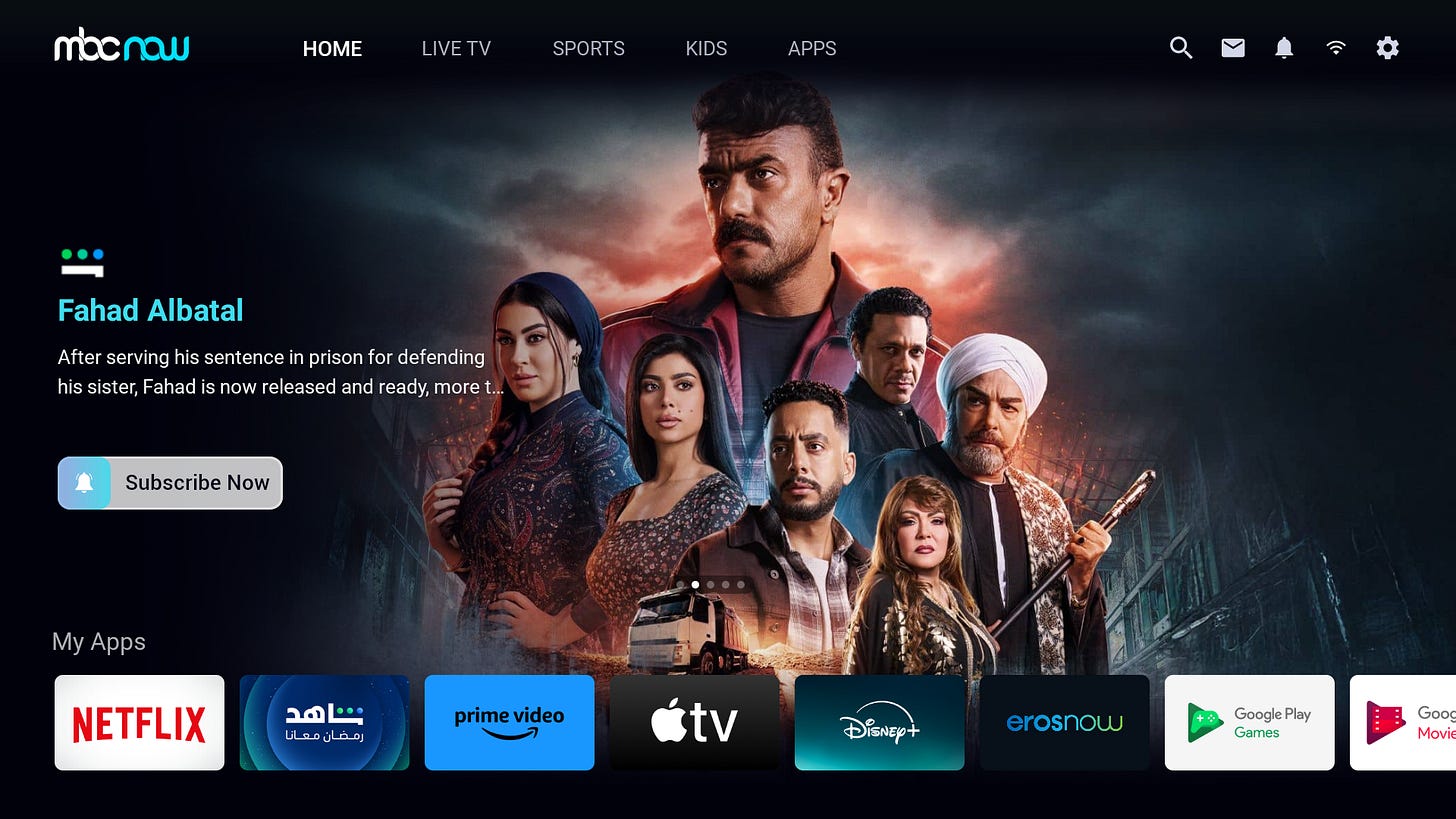🤝 Is MBC Finally Bringing All Streaming Together in MENA?
How MBC and Netflix are teaming up, and why it matters.
Hey streamers! Today we’re looking at the brand-new MBC x Netflix deal 🇸🇦👇
Since Cannes Lions last month, we’ve seen several partnerships between broadcasters and streamers. First came TF1 with Netflix in France. Then Prime Video with France Télévisions. Then Disney+ with ITV in the UK.
And now, it’s MENA’s turn. MBC Group, the biggest media company in the region, has announced a new partnership with Netflix.
At the center of this deal is MBCNOW, a TV box MBC launched in Saudi Arabia last year to bring everything together as a super aggregator.
In this article, I’ll look at what’s really behind this deal, what you won’t find in the press release. (The new packages were officially announced today!)
Is this a one-of-a-kind move for MENA? And could it change the future of streaming and TV in the region?
Let’s find out 👇
Read on to learn about:
MBCNOW explained: what it is, how it works, and what you get with the box
The MBC x Netflix deal: what has just been announced and why it matters
So What? The impact on the Saudi and MENA streaming ecosystems
MBCNOW explained: what it is, how it works, and what you get with the box
First, a quick reminder about MBC Group:
It’s the biggest media company in the Middle East and North Africa. The group started in London in 1991 with MBC1 and moved its headquarters to Riyadh in 2022.
Today, MBC operates over 13 TV channels and 3 radio stations, including MBC1, MBC2, MBC3, MBC MASR and MBC IRAQ. It also owns Shahid, the leading Arabic streaming service and MBC Studios, which produces original shows and films.
In February last year, MBC launched MBCNOW, an Android TV box designed to bring everything together.
The idea was simple: one device where you can watch MBC channels, sports, Shahid, and, over time, all the big streaming services in one place.
Why does this matter?
Because in MENA there are more than 100 platforms, both local and global, and no single place that brings them all together. Just look at how many have launched between 2008 and 2025 ↓



